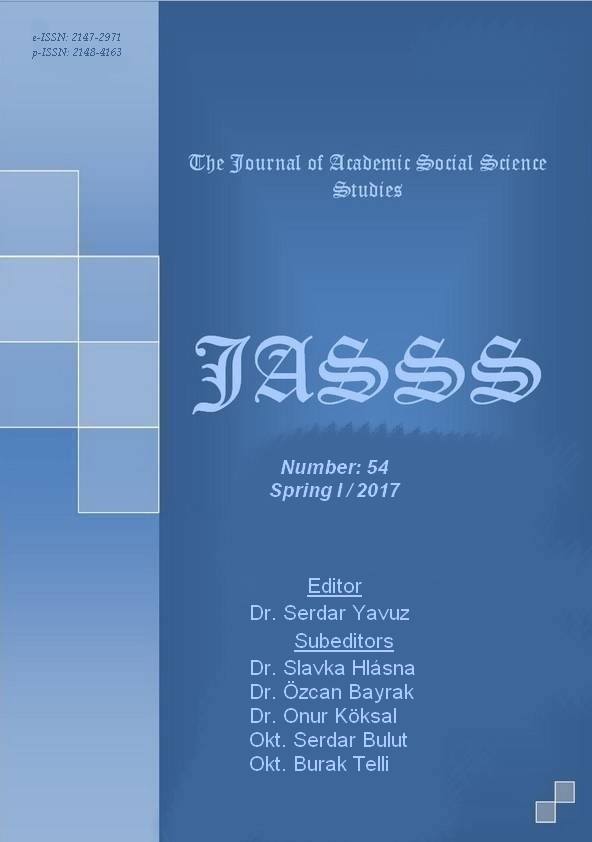Author :
Abstract
Türk eğitim sisteminde milli, manevi, kültürel ve ahlaki değerleri yetişmekte olan nesle kazandırma sorumluluğu büyük oran DKAB dersine verilmiştir. Bu açıdan bakıldığında hayati derecede bir öneme sahip olduğu söylenebilir. 1982 anayasası ile koruma altına alınarak zorunlu bir ders haline getirilmiş olması ona verilen önemin bir göstergesi olarak düşünülebilir. Burada sorulması gereken şudur: teorik olarak oldukça önemsenen ve hayati sorumluluklar üstlenen DKAB dersine öğrencilerin ilgi ve katılımı ne düzeydedir? Bu soruya cevap aramak düşüncesiyle nitel araştırma yöntemi kullanılarak başarı düzeyleri farklı beş ayrı ortaöğretim okulunda, belirlenen 11. Sınıf şubelerinde gözlemler yapılarak hem DKAB dersi öğretmenleriyle hem de gözlem yapılan sınıflardan seçilen 10’ar öğrenci ile görüşmeler yapılmıştır. Araştırma milli ve manevi değerlerin görece yüksek olduğu bir bölgede yapılmıştır. Yapılan çalışma ile tüm okullarda DKAB dersine öğrencilerin ilgi ve katılımının düşük olduğu sonucuna varılmıştır. Ders kitabını getirmeme, derste başı sıraya koyup yatma gibi alışkanlıklara sıkça rastlanmıştır. Ayrıca hem öğretmenlere göre hem de öğrencilere göre DKAB dersine ilgi düşüktür. Bunda da en büyük etken “zaten biliyoruz” düşüncesidir. Ayrıca üniversite sınavında ağırlığı olan derslere daha fazla zaman ayırma, din dersini kolay ve rahat geçilebilir görme, bir dinlenme dersi olarak düşünme ilgisizliğin nedeni olarak gözükmektedir. Ancak içerdiği düşünce, inanç, tutum ve değerlerden dolayı din dersine karşı bir ilgisizlik söz konusu değildir.
Keywords
Abstract
The responsibilities of instilling the national, spiritual, cultural, and moral values into the new generation in the Turkish education system have been mostly given to the DKAB courses. From this point of view, it can be said that it has a vital importance. That it is protected by the 1982 Constitution and be a compulsory course can be considered as a demonstration of the importance given to it. The question "what is the interest and participation of the students to the DKAB course that is very important theoretically and takes on vital responsibilities?" should be asked here. In order to find an answer to this question, qualitative research method was used and interviews were made with 10 DKAB course teachers, and 10 selected students from 11thdegree of each school in five different high schools with different success levels. The research was conducted in a region where national and spiritual values are relatively high. The result of this study is that the interest and participation of the students in the DKAB courses are low in all the schools. Not bringing textbooks to school, and drowsing on school desk by putting head are habits encountered frequently. In addition, according to both teachers and students, the interest in DKAB is low. The biggest factor in this is the idea "we already know". Moreover, to devote more time to courses that are weighted in the university entrance examination, to think that the religion course can be passed easily, and to consider it as a course of rest seems to be significant reasons of the indifference. However, because of the thought, belief, attitude, and values it contains, there is no indifference in religion.





